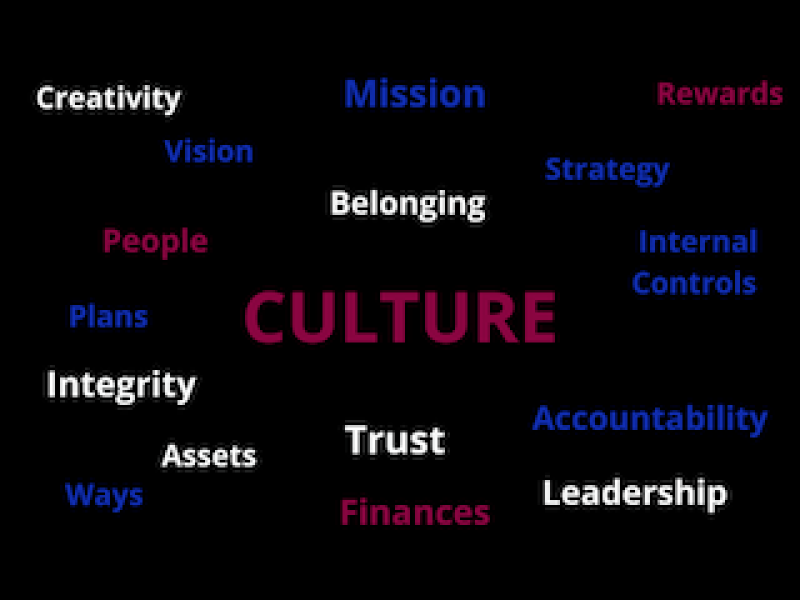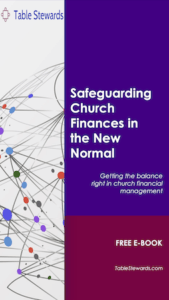Introduction
Why is good governance in church administration important?
Every organisation needs an effective ‘back office’ to enable it deliver its core mission. Delivering on the frontline requires a well-run back office. The same goes for churches.
The administration of a church is fundamental to enabling the smooth running of the core mission of preaching the Gospel of Jesus Christ and associated charitable activities.
Church administration involves all the functions that make the whole organisation work effectively. This includes the management of finances, human resources, record keeping, procurement and contract management, data management and information technology, and providing support to the spiritual and charitable operations of the church.
It also involves designing and implementing strategies, policies, processes and procedures for these functions, and making sure they are operating effectively.
Having good governance in church administration helps ensure that these enablers are in place and work effectively to support the core mission of the church.
Good governance is not a singular action but requires getting it right in a number of areas that matter to the successful administration of the church.
This articles take you through 9 such areas that churches need to get right. Read on!
Table Stewards uses a light-hearted scene setting approach to introduce its topics, but if you would prefer to dive straight into any part of the article, please click the relevant link in the table of contents above.
Scene Setting
The Learning & Development Committee’s pre-meeting with Coach Emmanuel is about to start, in preparation for the masterclass.
Brother Badtrus: Guess what?! While browsing the internet last night, I saw an ad pop-up about an organisation that helps with processing accounting transactions. They do everything from running your payroll to processing your income and expenditure. Using them could save us finance staff costs; don’t you think?
Sister Mary: I thought the board wanted our financial operations to be managed in-house and all transactions processed by our own staff?
Sister Jane: Yes, outsourcing is a big decision that should be taken with full cognisance of both the risks and benefits, and led by the board.
Brother Badtrus: Well, I know a good opportunity when I see one and I don’t think that needs board approval! Afterall, we may be saving the church some money!
Sister Mary: There are certain decisions that the board has reserved for itself and for which it remains accountable. We must respect that, for the church to operate effectively.
Coach Emmanuel: You are right – that is an element of good governance. You can make proposals to the board, but the ultimate decision is made by the board, if they have not delegated the decision-making to others.
Brother Badtrus: What do you mean by Governance?
Coach Emmanuel: Let’s start the masterclass, where all will be explained!
What is Governance?
Governance in simple terms means how organisations are directed, controlled and held to account.
This consists of the leadership structures put in place, decision making processes, accountability framework, controls and organisation culture.
Governance also includes the policies, strategies, plans, processes and arrangements that steer the organisation in the right direction.
Horizon scanning, risk management, and compliance with laws and regulations are also a key part of governance.
Governance influences how an organisation sets and achieves its objectives.
It is not a one-off process but a combination of systems, activities and processes that together set the tone of an organisation and how it responds to its environment.
What is Good Governance and Why is it Important in the Administration of Churches?
Good governance is an ongoing practise of steering an organisation in a direction that enables it to succeed in its mission, manage its risks, take advantage of opportunities and comply with laws and regulations.
Good governance sets the right tone and culture, works in the best interest of the organisation, and fosters trust and good reputation.
Most churches are set up as charities. According to the UK Charity Governance Code, good governance in charities is fundamental to their success. A charity is best placed to achieve its ambitions and aims if it has effective governance and the right leadership structures.
This article is focussed on the administrative governance of churches, rather than the spiritual governance. Within the church, the top governing body is ultimately responsible for governance over church administration, including finances.
Depending on the legal framework for the church, this could be the Board of Trustees, Board of Directors or Church Board.
Churches rely on voluntary engagement of members and therefore need to provide an environment of trust where people can feel comfortable to engage.
Poorly run churches are characterised by avoidable risks happening, lack of, or override of controls, data breaches, financial loss and undetected errors or fraud.
These indicators negatively affect the trust of people in the church and could mean that they lose confidence in the ability of the church to manage its finances and its culture. Many may therefore stop engaging with the church.
Church administration is also no longer just an internal matter of how a church organises its people, finances, operations and back-office.
Rather, in our ever-changing world of digital transformations, it transcends the boundaries of the church into the wider world.
For example, the use of online giving platforms means that the church is no longer limited to income collection during church services, but is open globally to anyone who want to give 24/7.
Being aware of the opportunities, risks and regulatory requirements posed by being a part of the digital world, and effectively managing them, now becomes a necessary part of good governance in churches.
Good governance in church administration is therefore characterised by exploring opportunities to maximise objectives, identifying and managing risks, compliance with laws and regulations, and building an organisational culture that fosters the successful achievement of the church’s mission and trust.
Sounds good! But how do you know which areas to focus on? Good question! Here are 9 areas to get right to foster good governance in church administration.
9 Areas to get right for good governance in church administration
1. Strategy, Structure and Skills
The Board should set the strategy for the administrative governance of the church, aligned with its governing documents.
This should include structures to support the board in financial governance and management.
It is important that the structures are not set up to operate in silos, so that dependencies and cross-cutting risks can be quicky identified and managed.
For instance, where churches utilise IT or digital means for aspects of church administration, such as personnel (HR) management, financial accounting systems, and/or online giving platforms; an effective link should be established between the information & digital technology governance structures and the financial governance structures.
There should be due representation of these structures on the board and committees, to ensure that risks are managed in the round, rather than in silos.
As well as setting the strategy and structures, getting it right with skills should not be overlooked.
Ensure that the right people with the right mix of strategic, financial, digital, HR and regulatory compliance skills are co-opted into boards and committees, where available.
Develop strategies, policies and processes that enable the recruitment and retention of the right people and skills across all levels in the church setting.
Consider buying in skills where there are gaps that may expose the church.
Board and committee members, and those in financial management roles should be aware of digital and cyber security risks and responses, and continuously upgrade their knowledge.
Where technology services are outsourced to service providers, such as the maintenance of the IT network infrastructure, the board should ensure that there is an internal “intelligent customer” to protect its interests in contract design, procurement and performance management.
The ultimate risks remain with the board.
2. Culture
Maintain a tone at the top of integrity, including strong financial integrity. This also means that no one, regardless of rank, should be allowed to override controls.
There should be consequences for deliberate breaches, fraud, or irregularities, published in policies that relay that these are treated seriously with the consequences apparent to all operatives.
Learn more about how to develop a positive culture for effective church administration.
3. Risk awareness
Know the risks that the church faces, regularly assess them and put mitigations in place to prevent them from materialising.
Understand the components of the key financial, HR, digital processes run by the church.
Continually educate yourselves on digital risks relating to the church financial platforms for income and expenditure, and options for mitigation.
Seek appropriate courses, literature, subscribe to relevant blogs, etc.
Read more on how churches can go about risk management in our articles on why risk management is necessary in churches and charities and 6 steps to risk management in churches and charities.
.
4. Maximising opportunities
Seek awareness of digital opportunities available to help the church to continually improve its reach globally.
Considering opportunities to benefit church operations is also a key part of risk management. Churches may lose out due to lack of awareness of, or not taking advantage of, known opportunities.
For example, in the UK, churches registered as charities can claim “Gift Aid” from the government, which is 20% rebate for every giving made by basic or high rate taxpayers.
Similarly, statistics on church giving found that the churches that accept tithing online increased overall giving by 32%.
5. Cyber Security
Adopt a holistic approach to cyber security led by a capable expert team reporting at board level.
Cyber security is defined as the application of technologies, processes and controls to protect systems, networks, programs, devices and data from cyber-attacks.
It is also about preventing unauthorised access to the huge amounts of data and personal information stored online and on devices (e.g. smartphones, laptops, tablets and computers).
A robust cyber security strategy is the best defence against attacks.
Maintain the security, integrity and availability of church platforms through implementing appropriate cyber security measures assessed and advised by cyber security experts, and monitored for ongoing effectiveness.
It is very important that all board members, committee members, staff and operatives of the church processes are trained in cyber security measures.
There are several news stories of organisation targeted by hackers due to poor cyber security.
Close to 90 percent of data breaches are caused by human error most of which could have been avoided by simple security standards covering strong passwords, and how to identify potential cyber-attacks, phishing, social engineering etc.
All a hacker needs is an untrained employee to give the hacker access to the church systems. This could be by getting scammed into giving out their password, losing their laptop, or opening malicious email attachments.
The UK National Cyber Security Centre (NCSC) articulates 10 Steps to Cyber Security starting with defining and communicating the Board’s information risk management regime.7. E-Commerce Regulations
Understand the regulatory requirements for digital processing of payment card data and financial information and ensure compliance by the church and any third party organisation acting on behalf of the church.
This applies to online giving platforms and other merchandise sold by the church such as books, communion and related materials.
For example, Payment Card Industry Data Security Standard compliance, PCI DSS, helps ensure healthy and trustworthy payment card transactions for the hundreds of millions of people worldwide that use their cards every day.
6. Data Privacy
Protect the data of givers who have entrusted the church with their personal data for that purpose. Most organisations never fully recover from data breaches.
Data breaches can cause personal loss to individuals, and weaken trust in the church’s ability to govern its data and finances, and therefore impact on people’s willingness to give.
Understand the church’s obligations under General Data Protection Regulation (GDPR) and ensure the church duly implements the requirements.
A church that has a global reach and receives online giving from across the world including the European Economic Area (EEA), would need to ensure that it is compliant with GDPR.
7. E-Commerce Regulations
Understand the regulatory requirements for digital processing of payment card data and financial information and ensure compliance by the church and any third party organisation acting on behalf of the church.
This applies to online giving platforms and other merchandise sold by the church such as books, communion and related materials.
For example, Payment Card Industry Data Security Standard compliance, PCI DSS, helps ensure healthy and trustworthy payment card transactions for the hundreds of millions of people worldwide that use their cards every day.
8. Service Provider Contracts
Where the maintenance of IT infrastructure is outsourced to a service provider, the board must ensure that the contracts provide for adequate cyber security, data protection and regulatory compliance.
There should be regular contract performance monitoring with review of performance data.
Remember that you cannot delegate your responsibility for security, compliance or the trust that church givers place in your financial governance.
Utilise specialists’ expertise where beneficial to ensure due protection for the church assets and finances. For instance, use digitally aware legal teams to assess contracts with third party service providers e.g. online giving platform providers.
9. Harnessing data
Data analysis is the lifeline of effective decision making.
Churches are already used to tracking data covering people (church service attendance) and money (income per service).
In the current industrial revolution, big data is key feature enabling technological advancements.
The board needs to understand what data is relevant to assess performance, the early warning indicators of things that may be going wrong, and timing of further interventions or opportunities to take advantage of.
Utilising data analysis to support decision making is crucial to staying ahead and getting the right balance between risks and controls.
Conclusion
Governance is how organisations are directed, controlled and held to account. Good governance does this well; it sets the right tone for successful achievement of objectives, identifies and manages risks, and maximises opportunities.
Good governance in church administration helps churches succeed in their missions and fosters trust and a good reputation. The board of a church is responsible for governance and getting it right. 9 areas to get right are outlined in this article.
Read more about why risk management is necessary in churches and charities and how internal controls help protect finances.






